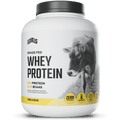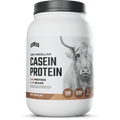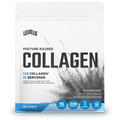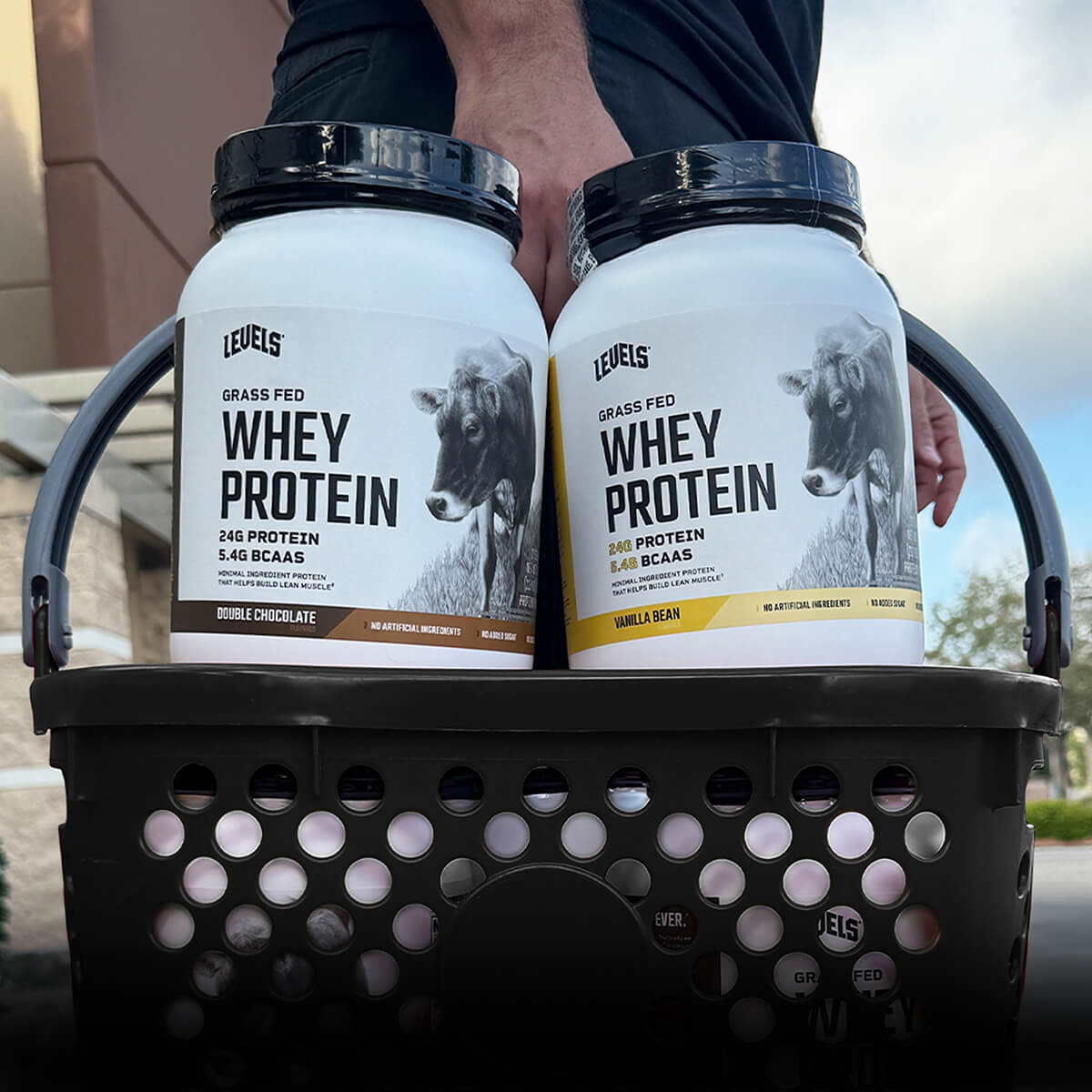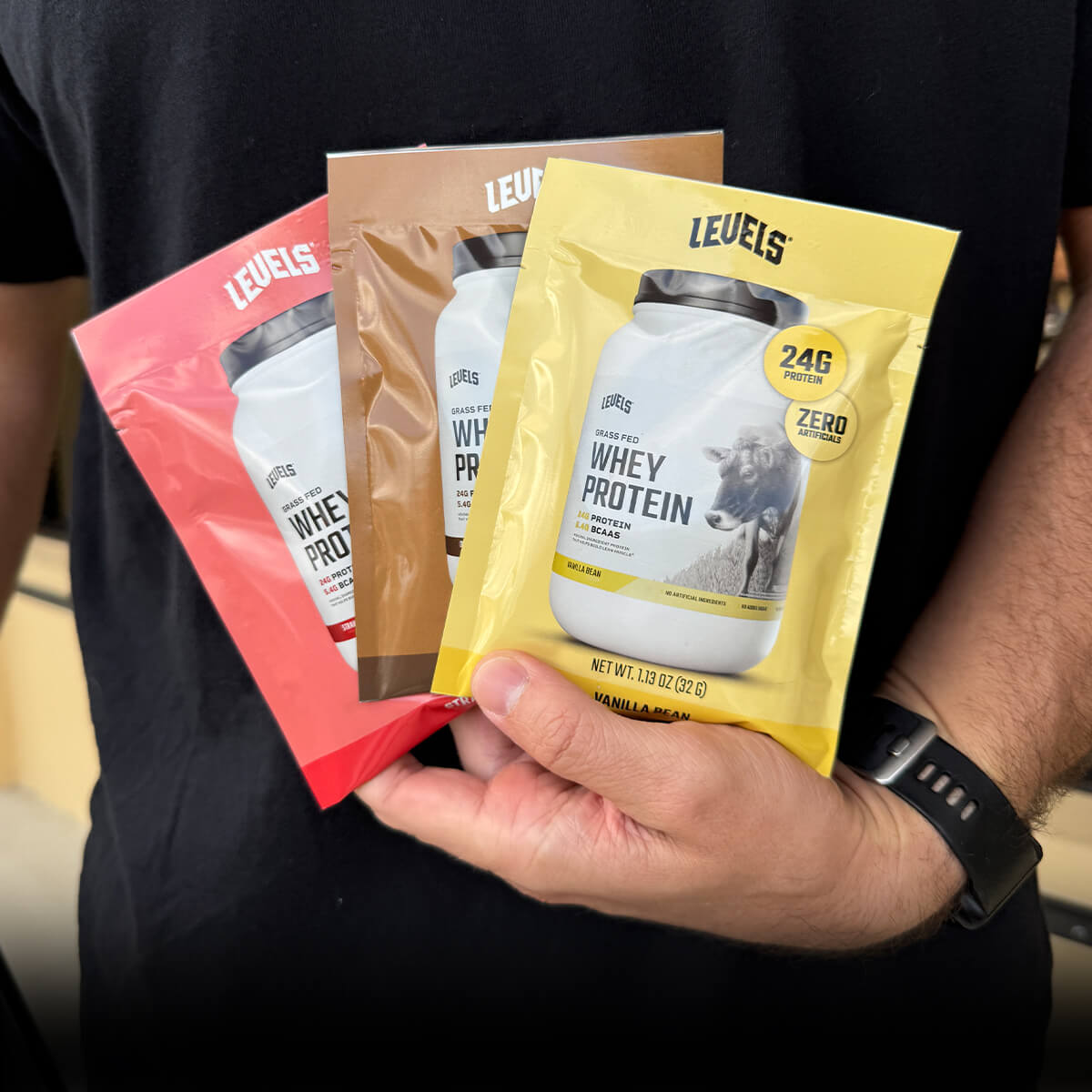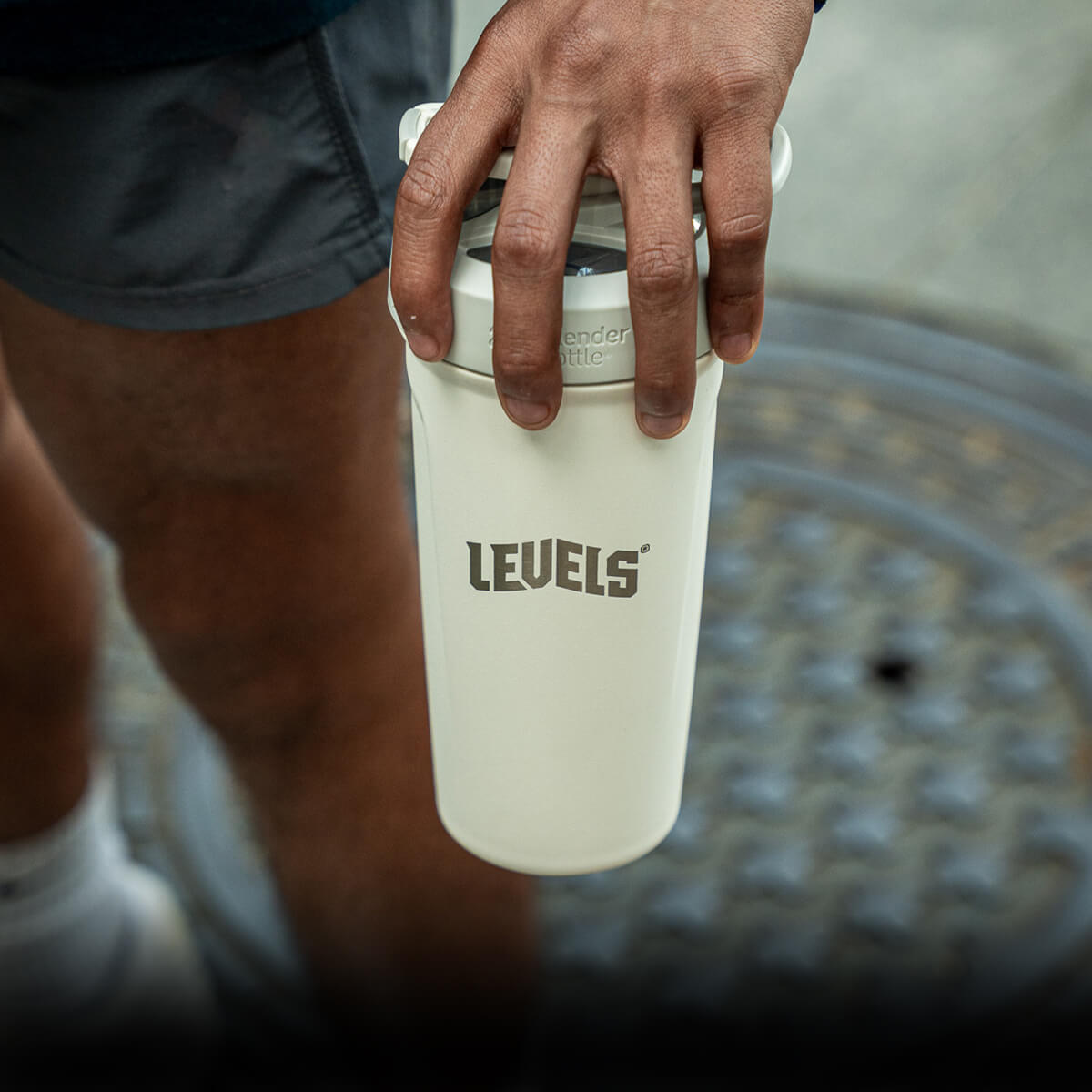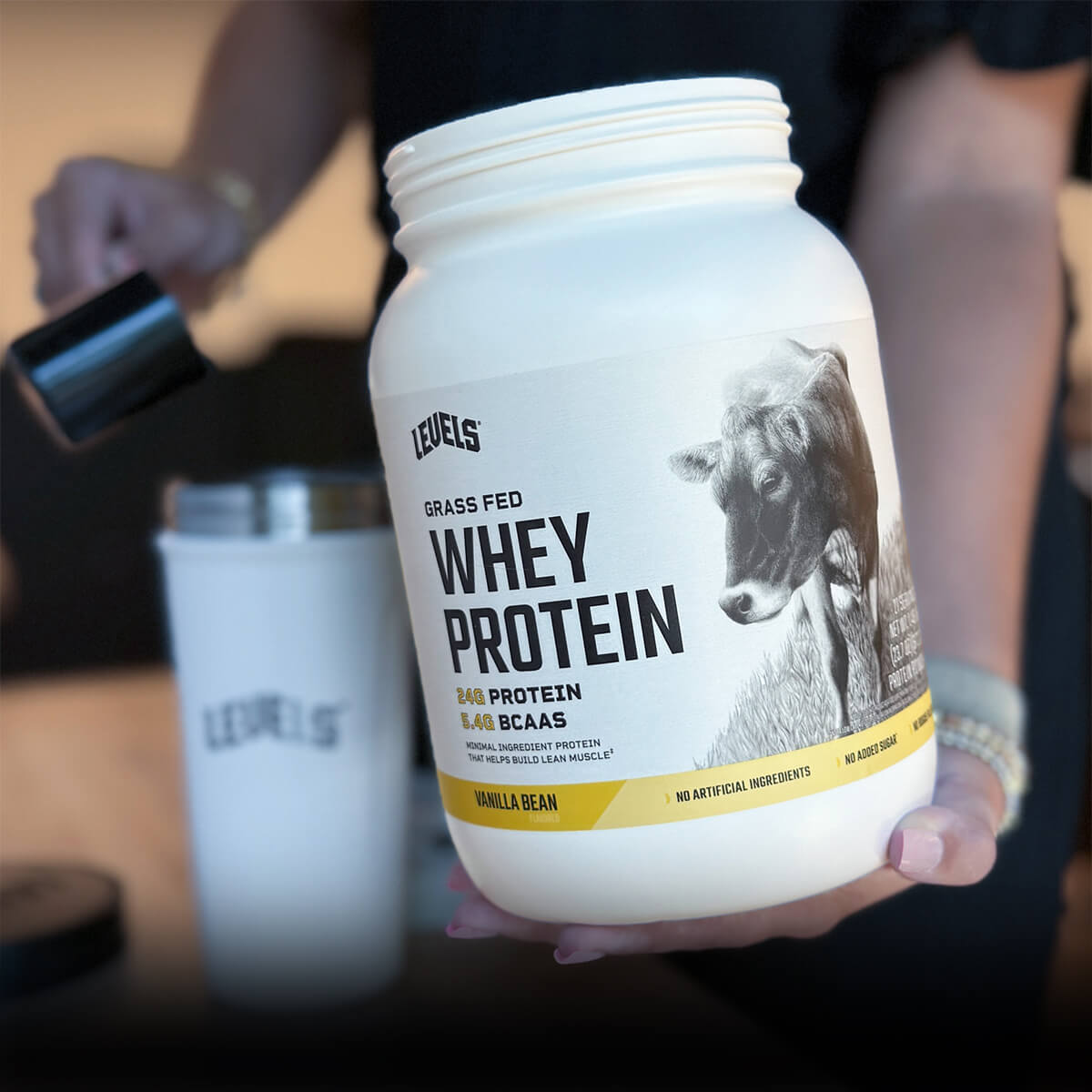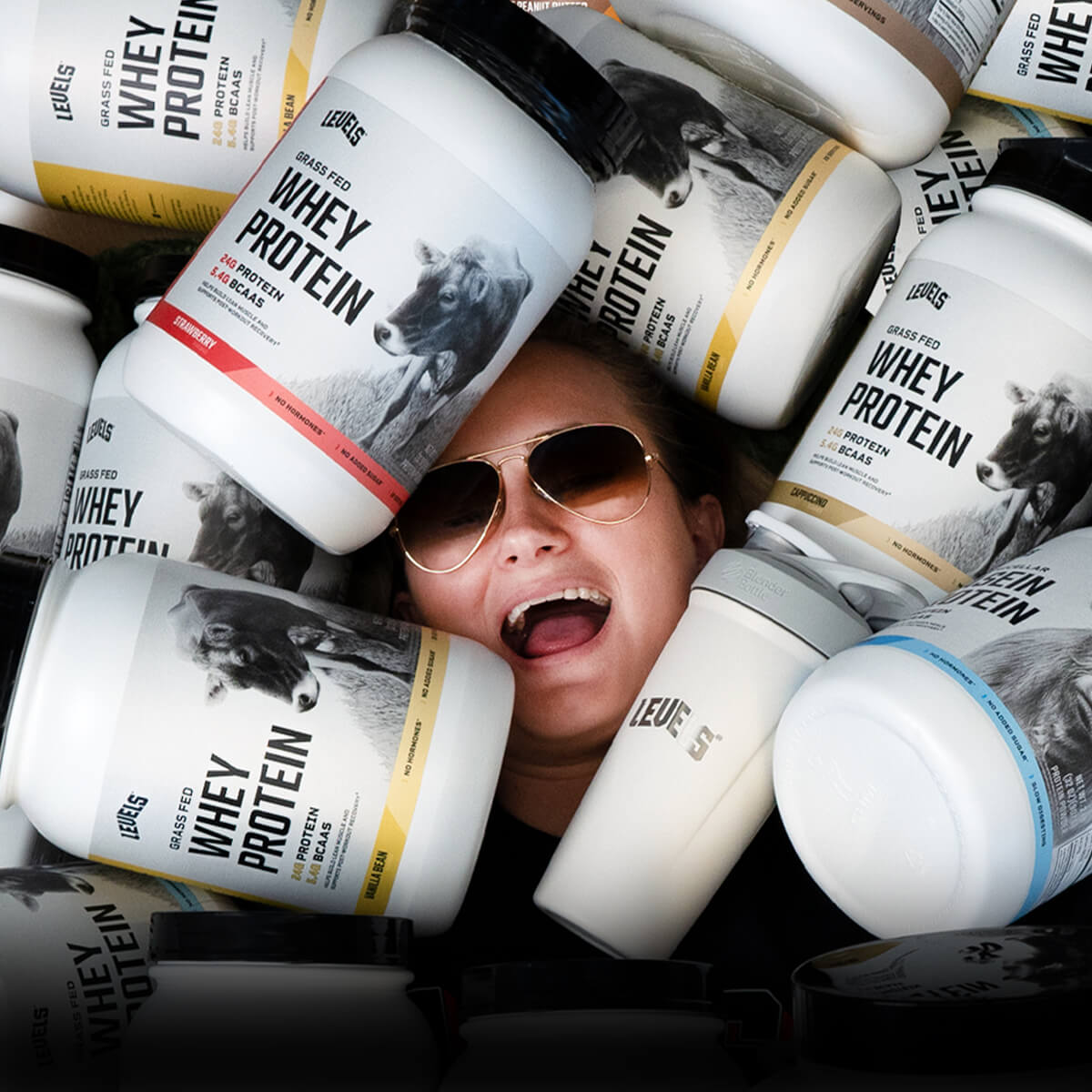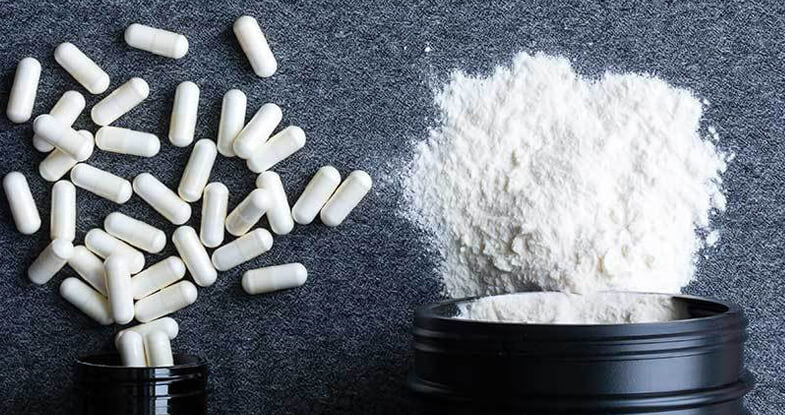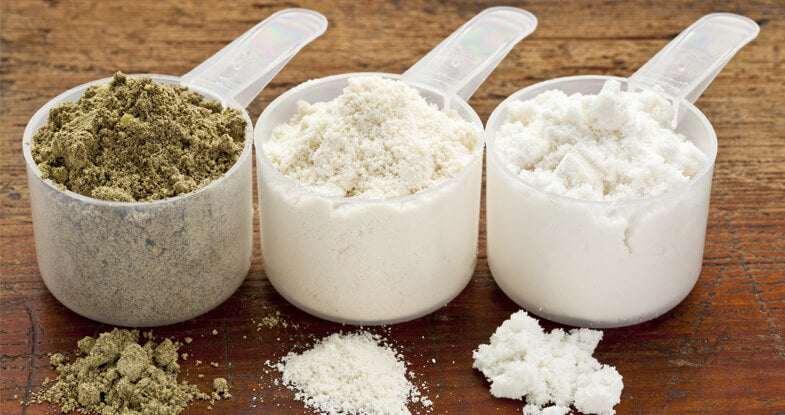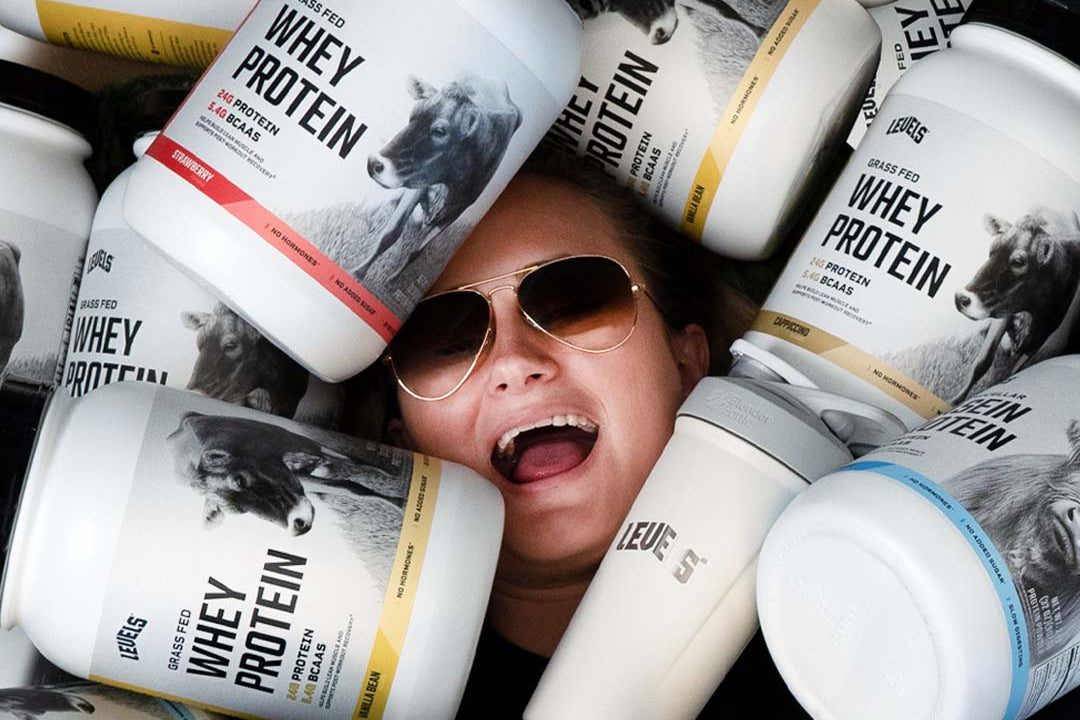Whether it’s a boost of energy or better recovery, everyone is looking for an edge to reach their fitness goals. So when it comes to choosing between two popular supplements, creatine and whey protein, how do you know which is right for you?
Should you only pick one, or would you gain more from combining both in your routine?
If these two popular supplements have you feeling confused, this guide is here to help. We’ll discuss everything you need to know, including the benefits and downsides of each.
You’ll also learn the best times to use both supplements. And you’ll gain a better understanding of which may be right for you.
What is Creatine and When Should You Use It?
Creatine is a naturally occurring organic compound found in your muscles. Unlike whey, creatine does not contain protein. Instead, it helps your body process protein.
Without getting too technical, creatine helps break down adenosine triphosphate (ATP) into adenosine diphosphate (ADP) -- stay with us. ATP is an energy source that helps power your muscles during a workout. But that can’t happen until the ATP breaks down into ADP, the usable form of that energy. In other words, as training depletes ATP, creatine gives your body another energy source to run off and combat fatigue.
Studies have shown that supplementing with creatine may improve athletic performance and help increase muscle strength and endurance[*][*]. That’s why both athletes and bodybuilders choose to supplement with creatine.
If you want to learn more about how creatine works, check out How & When to Take Creatine (Plus 4 Reasons to Take It).
Subscribe to get the latest advice, sales, discounts, product drops and more. Join now and get 15% off your first order.
The Top 8 Benefits of Creatine
People supplement their workouts with creatine because it can:
- Increase energy
- Support muscle repair
- Boost anabolic hormones
- Reduce muscle breakdown
- Lower myostatin (which can slow or inhibit new muscle growth)
- May prevent age-related muscle loss
- Heighten athletic performance and increase muscle strength[*]
- Release water content into muscle cells that may aid in muscle growth and improve body composition
The Downsides of Creatine
Creatine helps send signals to the body to increase muscle protein synthesis and increases levels of ATP but does not contain the protein needed for muscle protein synthesis. So if you’re only supplementing with creatine, you’ll want to combine it with a protein shake to create an optimal pre- or post-workout recovery drink.
Additionally, some people may find that creatine gives them muscle cramps, stomach pain, nausea, or diarrhea[*].
Should You Take Creatine Before or After a Workout?
The timing of your creatine intake -- either pre- or post-workout -- all depends on your goals.
If you need some energy before your workout, take creatine as part of your pre-workout. But, if you find yourself hungry before your workout, you may need something more substantial, like whey protein.
And taking creatine after your workouts helps nutrient-depleted muscles refuel and recover the energy stores you depleted.

Whether you take creatine before or after a workout is up to you, but it’s important to understand how much to take, as well.
A popular method known as “creatine loading,” involves taking higher initial doses of creatine for 5-7 days to saturate your muscles with creatine stores. A 1996 study researched the effects of the creatine loading phase and found similar levels of creatine stores after 28 days in men regardless of whether or not they underwent a creatine loading phase[*].
While the study did find that creatine loading did provide an initial surge in intramuscular creatine stores, this is only necessary if you’re looking for results within the first two week period. In the long run, the loading phase may not be as crucial as the regular maintenance of creatine intake.
Learning what works for you is vital. So try experimenting with creatine before your workout one day, and after your workout on another day. See if you feel a difference in your performance, endurance, or strength. That’s the only way you’ll be able to make an accurate comparison. Keep in mind, it may take a few weeks to reap the benefits of creatine supplementation fully.
How Does Whey Protein Compare to Creatine?
Whey protein comes from the liquid part of milk that’s leftover from making cheese. As its name suggests, whey delivers a concentrated source of protein for your body. It’s also packed with health benefits and more filling than creatine since it contains protein, which is satiating and helps you feel full.
The Top 9 Health Benefits of Whey
Many people prefer to supplement with whey protein because it:
- Helps increase their protein intake
- Contains all nine essential amino acids
- Aids in muscle growth and strength
- Ups lean body mass
- Helps decrease appetite
- Boosts your metabolic rate
- Supports muscle recovery after workouts, especially on resistance and strength training days[*]
Possible Downsides of Whey
Whey protein may not be the best choice if you have lactose intolerance. Since it’s a byproduct of the cheesemaking process, it contains dairy.
For people who don’t tolerate lactose well, whey protein may cause an increase in bowel movements, nausea, cramps, bloating, headaches, fatigue, and excess thirst.
Should You Take Whey Pre- or Post-Workout?
Your whey protein timing also depends on what you’re hoping to achieve.
Want to gain lean muscle mass? We recommend using around 40 grams of whey protein after your workout. Too hungry to finish your early morning or after-work yoga class? You may benefit from supplementing before you even start stretching.
If you’re trying to increase your protein intake with a convenient, healthy source, you can always supplement with a whey protein shake any time of the day. Quick protein drinks like this work well as a meal replacement when you’re short on time and can also serve as a satiating snack in between meals.
Creatine vs. Whey Protein: Which One is Right?
When choosing between creatine and whey protein, there’s no right answer -- they each bring something different to the table and some of their benefits even overlap.
Whey protein is better at feeding your muscles, which helps them recover and grow. Creatine helps increase your muscle’s energy stores of ATP so you can maximize the effects of each workout. The excess ADP can support muscle growth, which is where the overlap between whey protein and creatine occurs.
Since they both set out to accomplish different goals, you can use each to create an effective supplement regimen.
Can You Mix Creatine and Whey Protein?
Studies have shown that combining whey protein and creatine is safe[*][*]. And, since they’re both effective supplements on their own, you can use both, even if you don’t take them together.
Combining creatine and whey protein in a post-workout shake helps prevent muscle breakdown, replenishes energy stores, and aids in muscle protein synthesis. And since their main roles overlap, providing more energy (creatine) and fueling muscle building and recovery (whey protein), combining the two is a convenient way to power your routine and achieve your goals faster.
Takeaway
Now you should have a much clearer idea of how and why to add creatine, whey protein, or both into your fitness regimen. Remember that supplements are just the tools we use to reach our fitness goals, and everyone’s journey is going to be different.
Before you choose any supplements, write down your goals and struggles. This will narrow down your search and allow you to only shop for supplements that will help you reach or overcome those.
Don’t forget: always choose high-quality supplements that don’t contain any artificial ingredients or bogus fillers.
